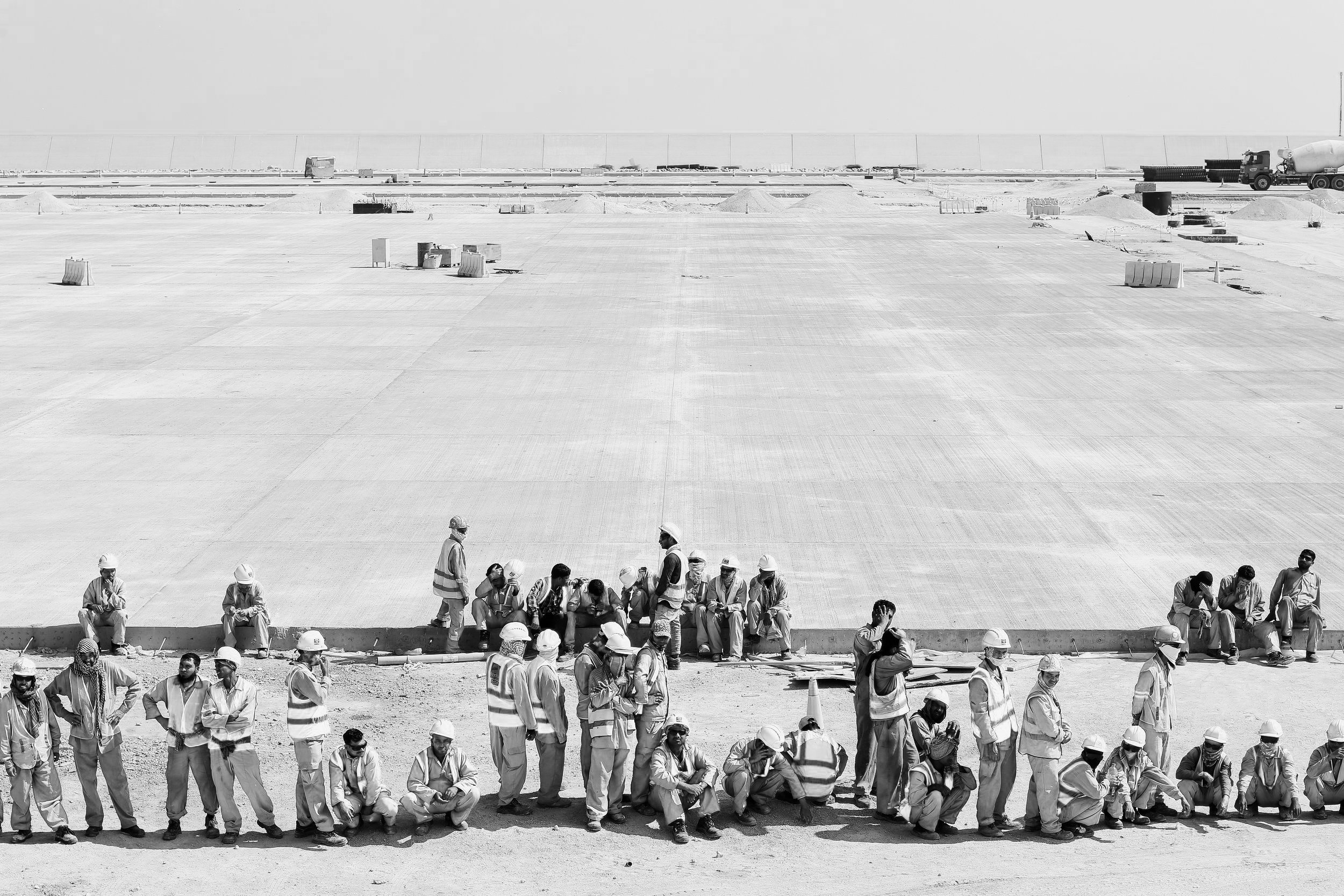
PRECARITY
APRIL 22-23, 2022
PhD conference on architectural research at the limits of technology, project-making, and history/theory
(On-line Conference)
Organized and sponsored by the PhD Program in Architecture at UPENN
Image: Sebastian Castelier/Shutterstock.com
‘Precarity’ is a difficult to overlook condition of life in the 21st century. Almost as if by design, the circumstances of global capital—whose extractive industries and financial arrangements imperil labor, material supply chains and all who engage with the built environment—have rendered architecture highly vulnerable in the face of material and data waste, and the accelerated specter of environmental collapse. While such actualities pose difficulties for those who practice, there is perhaps no more urgent a moment to reckon with inherited Enlightenment epistemologies that have led to this point, and to imagine alternative models of architectural research and scholarship. ‘Precarity’ can begin to trace the outlines of a new framework that address architecture’s extended milieu and the outcomes it produces. This conference hosted by the PhD Program in Architecture of the Weitzman School of Design encourages the exploration of ideas aligned with the theme of ‘Precarity’. It features papers that examine the theme of Precarity from the perspectives of technology, project-making, and history/theory. The conference represents an opportunity to question the boundaries of architecture, as well as to seek interdisciplinary contributions that interrogate multiple perspectives.
How might architectural technology address questions of precarity? With renewed urgency in environmental matters—from resource scarcity to the need for increased resiliency in the face of extreme climate events—innovative designs are required for addressing our uncertain future. This heightened level of environmental precarity invites interdisciplinary discussions on energy efficiency, thermal comfort, healthy buildings, building ecology, and environmental justice. Moreover, the digital revolution has led to the development of novel spatial design technologies, devices, and tools, that have delivered new generative processes that are now indispensable to the design process. The conference asks whether architectural research in technology can address the fragility of legacy infrastructures, the uncertainty of future climate norms, the redundancy of resilient systems, as well as questions of equity in computational methods, data, and fabrication technologies?
How might the practice of project making address the question of precarity, when architects and their allies are faced with ever greater limitations when committed to the act of building? Architecture is predicated on the conceptualization and execution of changes, alterations, and additions to the built environment. Yet, no more challenging a context is there than the physical infrastructure in which we live. War, political neglect, and environmental crisis contribute to an increased sense of vulnerability in all things material. The conference asks in what way, architectural research centered on the materialization of architectural projects might contribute to a critical response to precarity.
How might architectural historians and theorists address the environmental and social vulnerabilities resulting from architectural practice given the precarious status of the discipline—and the humanities writ large—within the university? What new methods might be needed to attend to such an unwieldy archive of uncertainty that challenges the way in which architectural knowledge is produced? In this conference, scholars are invited to take precarity as a lens through which to examine the history and theory of architecture, to imagine alternative historiographic and theoretical methods, and to project new ethical and political imperatives for the architectural historian or theorist.
PROGRAMME
DAY 1: Friday 22nd April, 2022
9:45 am
Openings
Dean Fritz Steiner and Chair Winka Dubbeldam
Graduate Group Chair, Franca Trubiano
10:15 am
Paper Session 1: Technology’s Boundaries and Affordances
Respondent - Erica Cochran Hameen, Carnegie Mellon University
12:00 pm
Break
12:30 am
Paper Session 2: Project-Making - Materializing Projects
Respondent - Franca Trubiano, University of Pennsylvania
2:15 pm
KEYNOTE Session and Roundtable discussion - “Craft, Culture and Computing: Grounding our field in the social,” Vernelle A.A. Noel, Georgia Institute of Technology
DAY 2: Saturday 23rd April, 2022
9:00 am
KEYNOTE Session - “Does Skill Make Us Human?: The Making of Urban Futures in Qatar and Beyond,” Natasha N. Iskander, New York University, Wagner School of Public Service
10:00 am
Paper Session 3: History/Theory - Theory’s Contested Territories
Respondent - Tao DuFour, Cornell University
12:00 pm
KEYNOTE Session and Roundtable discussion - “A Ruin in Reverse,” Ana Maria Leon, University of Michigan
Organized by:
Franca Trubiano, Faculty Advisor
Mostafa Akbari
Sara Alajmi
Anwar Basunbul
Rami Kanafani
M.C. Overholt
Antonios Thodis